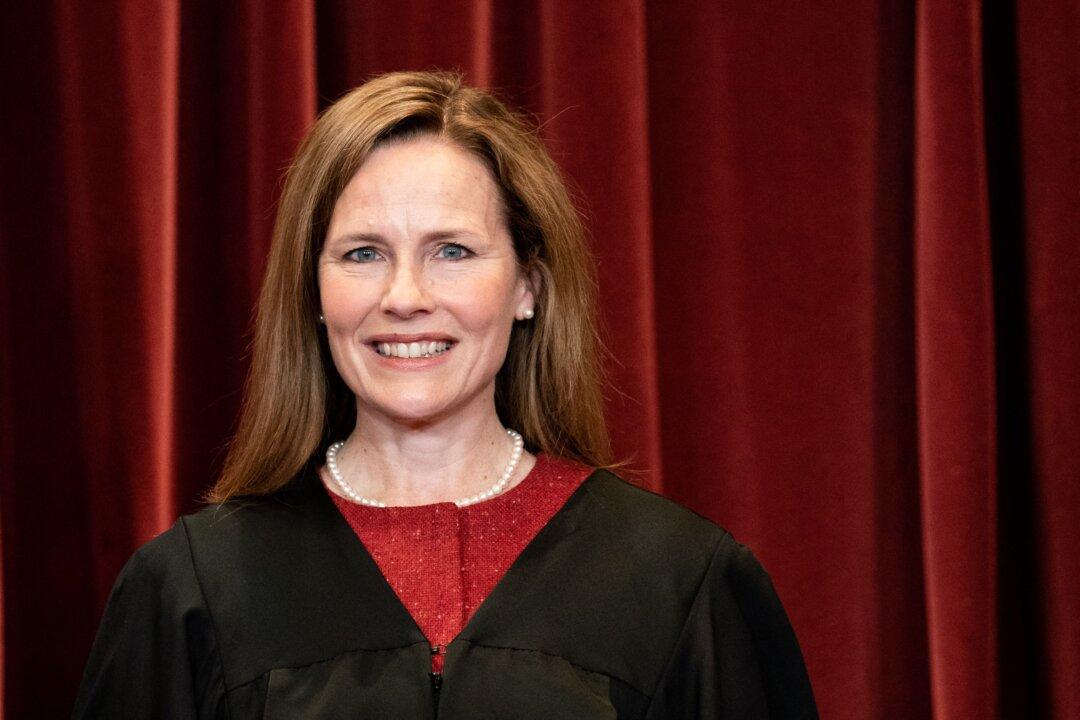Supreme Court Justice Amy Coney Barrett on Thursday declined to block Indiana University’s (IU) COVID-19 vaccine requirement which takes full effect this fall, offering no explanation for her decision.
Barrett, an appointee of former President Donald Trump, made the decision alone in response to an emergency request from eight IU students who sued the school in June. The students argued that the inoculation requirement would violate their constitutional rights by forcing them to receive unwanted medical treatment.





